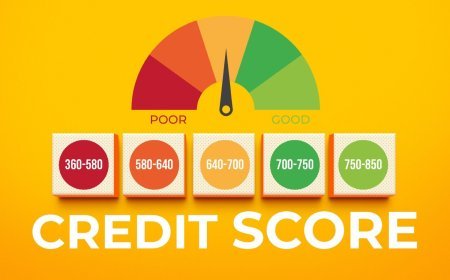Credit Score Ranges Explained: What's a Good Score and Why It Matters
Understand credit score ranges and what constitutes a good credit score. Learn how different scores affect loan approvals and interest rates.

Credit scores are three-digit numbers that summarize your creditworthiness, but understanding what different score ranges mean can help you better manage your financial opportunities. Most lenders use FICO scores, which range from 300 to 850, though some use VantageScore models with similar ranges.
Excellent credit scores range from 800 to 850 and represent the highest tier of creditworthiness. People with excellent credit qualify for the best interest rates on loans and credit cards, premium rewards credit cards, and higher credit limits. They typically have long credit histories, no missed payments, low credit utilization, and diverse credit types.
Very good credit scores span 740 to 799 and still qualify for competitive interest rates and favorable loan terms. Most lenders consider these borrowers low-risk, and the difference in rates between very good and excellent credit is often minimal. This range represents responsible credit management with occasional minor issues.
Good credit scores range from 670 to 739 and represent average creditworthiness. Borrowers in this range qualify for most loans and credit cards but may not receive the best interest rates. They might pay slightly higher rates on mortgages and auto loans, but the differences are usually manageable with proper shopping.
Fair credit scores fall between 580 and 669, indicating some credit challenges. Borrowers may face higher interest rates, lower credit limits, and stricter loan requirements. Some premium credit cards and loans may be unavailable, but many lenders still offer products to this segment, often with additional fees or requirements.
Poor credit scores range from 300 to 579 and indicate significant credit problems. Borrowers face limited options, high interest rates, and may need cosigners or collateral. Many traditional lenders avoid this segment, leaving borrowers with specialized lenders that charge premium rates.
Different types of loans have varying credit score requirements. Conventional mortgages typically require scores of 620 or higher, while FHA loans may accept scores as low as 580 with higher down payments. Auto loans are available across most score ranges, but rates vary dramatically. Credit cards range from secured cards for rebuilding credit to premium rewards cards requiring excellent scores.
Your credit score impacts more than just loan approvals and interest rates. Landlords often check credit scores before approving rental applications. Employers in certain industries may review credit reports during hiring processes. Insurance companies in some states use credit information to determine premiums. Utility companies may require deposits from customers with lower scores.
Improving your credit score requires consistent effort across multiple factors. Payment history carries the most weight at 35% of your score, so never miss payments. Credit utilization should stay below 30% of available limits, with below 10% being ideal. Length of credit history matters, so keep old accounts open even if unused. Credit mix helps slightly, showing you can manage different types of credit responsibly.
What's Your Reaction?
 Like
0
Like
0
 Dislike
0
Dislike
0
 Love
0
Love
0
 Funny
0
Funny
0
 Angry
0
Angry
0
 Sad
0
Sad
0
 Wow
0
Wow
0











































